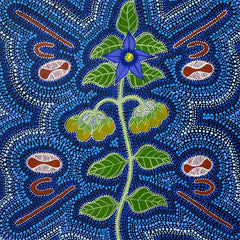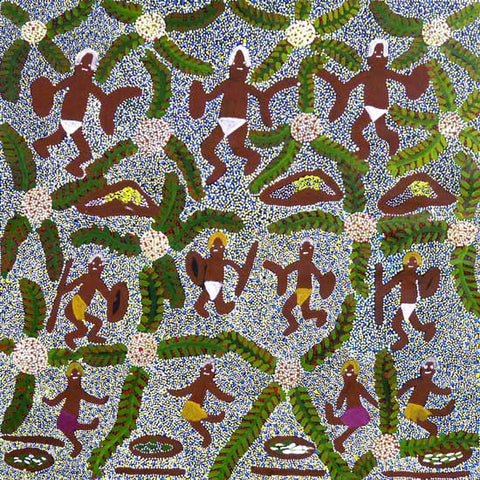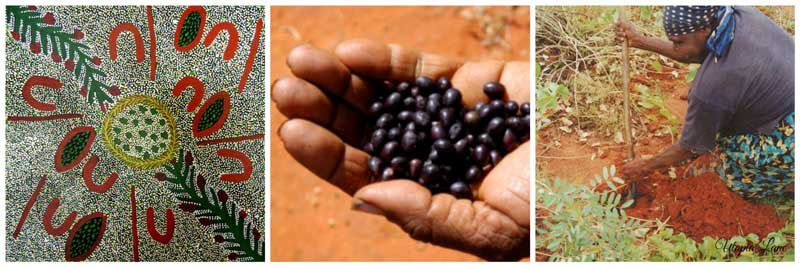Your Cart is Empty
Paintings
Exhibitions
Subscribe to receive your exclusive preview of exhibitions prior to opening.
You will be able to view and purchase exhibition artworks before they go live.

Current Exhibition

Past Exhibitions
Subscribe to receive your exclusive preview of exhibitions prior to opening.
You will be able to view and purchase exhibition artworks before they go live.
Subscribe
Collections
Artists
About the Artists
Our vibrant and dynamic artists are from the Utopia region; a large remote area of Central Australia which, until recently, had no government funded art centre. As a result of their pioneering efforts, they have one of the strongest and richest art histories.

Explore More Artist Bio's >
About the Artists
Our vibrant and dynamic artists are from the Utopia region; a large remote area of Central Australia which, until recently, had no government funded art centre. As a result of their pioneering efforts, they have one of the strongest and richest art histories.
Bush Tucker in Aboriginal Art
March 30, 2016 1 min read
 Collecting bush tucker (or bush foods) is still a common practice by the Aboriginal people of Central Australia, although some of the more arduous forms (such as collecting seeds) is not habitual now.
Collecting bush tucker (or bush foods) is still a common practice by the Aboriginal people of Central Australia, although some of the more arduous forms (such as collecting seeds) is not habitual now.
Often the subject of Aboriginal paintings are Dreamtime stories that are also food sources, such as conkerberries or bush yams. But when speaking of 'bush tucker' in Aboriginal art the significance is placed on the collecting of food, the rituals associated and the community activity.
Bush tucker and bush foods can be depicted in numerous ways in aboriginal paintings. In Australia's Central Desert, they are often illustrated in a natural form, rather than as a symbol, and accompanied by symbols depicting traditional ritual and teaching of the activity.
The single most common symbol used in bush tucker paintings is the U shape, denoting women or men.

Traditional tools used for collecting bush tucker are coolamons (carved wooden bowls), represented symbolically by an oval shape, and digging sticks or 'nulla-nullas' depicted by straight lines. Digging sticks are typically made of hard wood such as Mulga wood and doubled as a club for hunting small animals, and are fashioned with smooth but narrow ends.
There may also be a circle, or concentric circles, in bush tucker paintings representing the site of where the bush tucker is being collected. Other symbols still abound but these are the most common still painted today.

For information on individual bush tucker, visit Bush Tucker.
Leave a comment
Comments will be approved before showing up.
Also in News & Info

Bush Medicine by Laurie Morton Kngwarreye
March 25, 2024 1 min read
Laurie's works are simplistic in design, offering something more subtle for your walls.
From Ampilatwatja, he focuses each work on a different bush medicine. We have just a few, with two pieces like this in carbon black with antique white dots on a crisp white canvas.

My Mother's Country Exhibition now open
May 09, 2023 1 min read
My Mother's Country showcases fifteen new works on canvas by Anmatyerre artist, Dora Mbitjana, inspired by her mother's country.
Read More
Motorbike Paddy Ngale Finalist in 2023 Telstra NATSIAA
May 04, 2023 1 min read
Finalists have been announced for the 2023 Telstra NATSIAA and our very own Motorbike Paddy Ngale, Ahalpere elder, is one of 31 from the Northern Territory.
Subscribe
Sign up for exhibition previews, new arrivals and more …
Recent Articles
- Bush Medicine by Laurie Morton Kngwarreye March 25, 2024
- My Mother's Country Exhibition now open May 09, 2023
- Motorbike Paddy Ngale Finalist in 2023 Telstra NATSIAA May 04, 2023
- Barbara Weir January 04, 2023
- Artist News August 25, 2022
Subscribe
Sign up for exhibition previews, new arrivals and more …

Subscribe to our VIP group for new arrivals, exhibition previews + special features ♥






